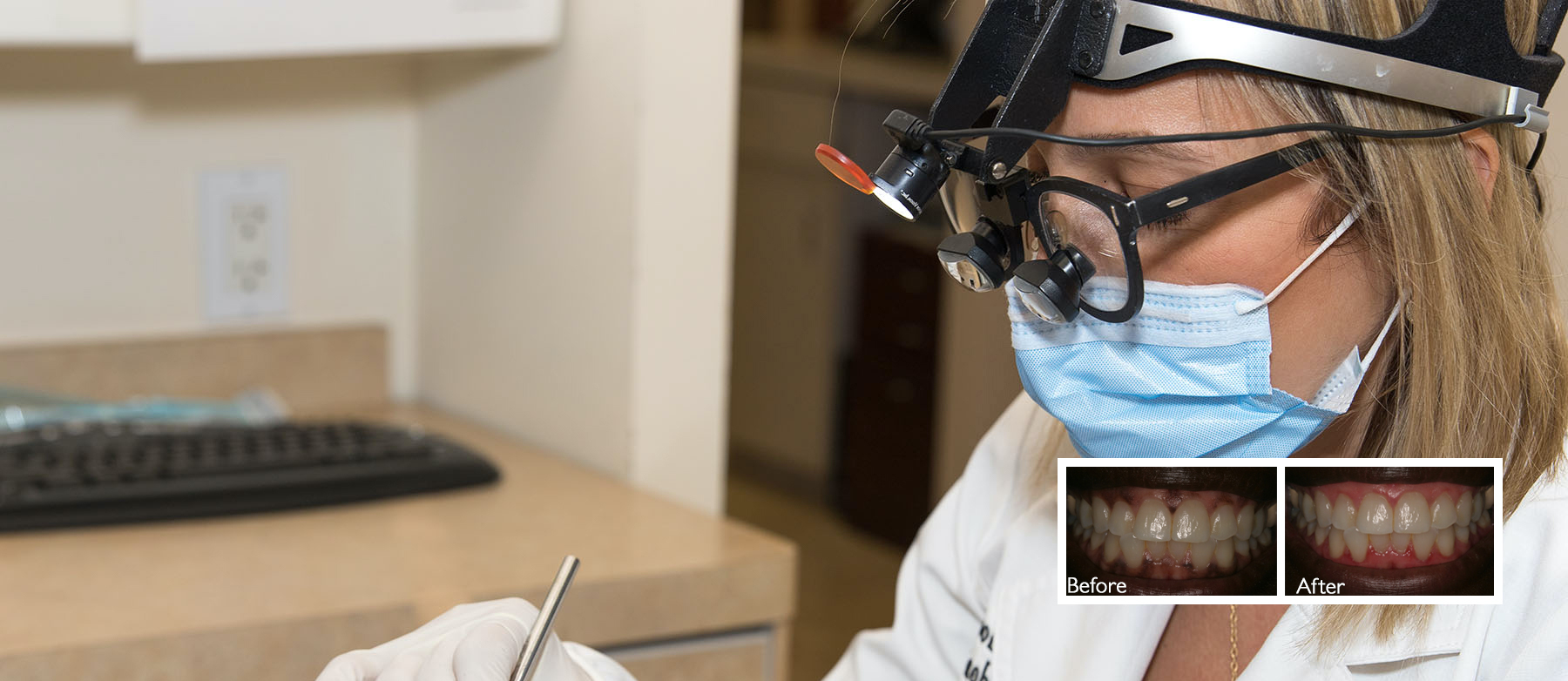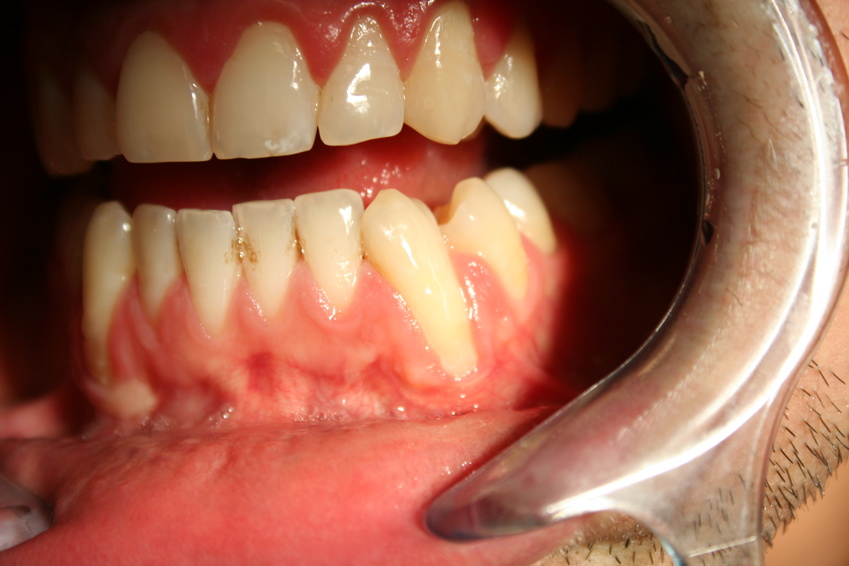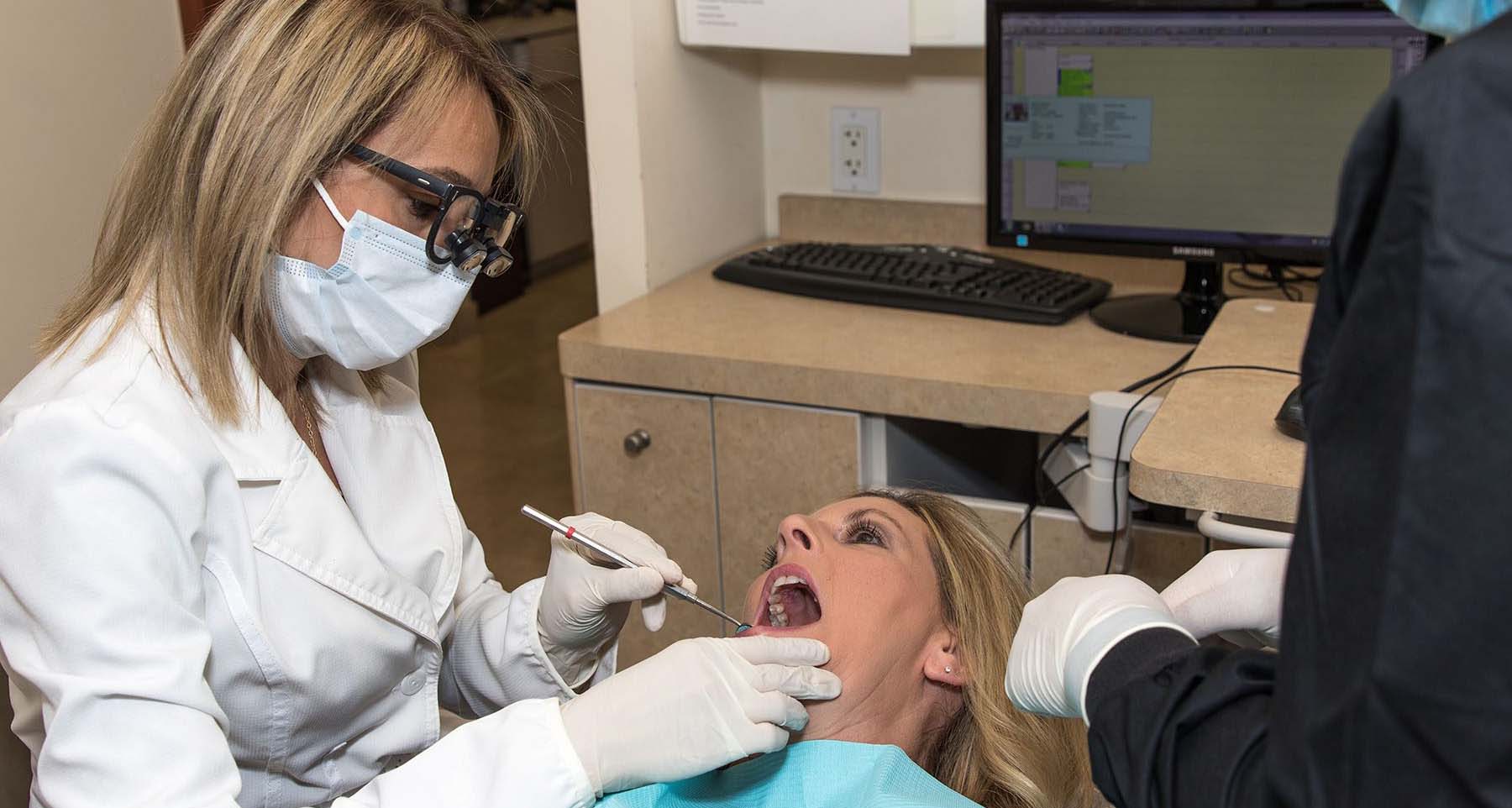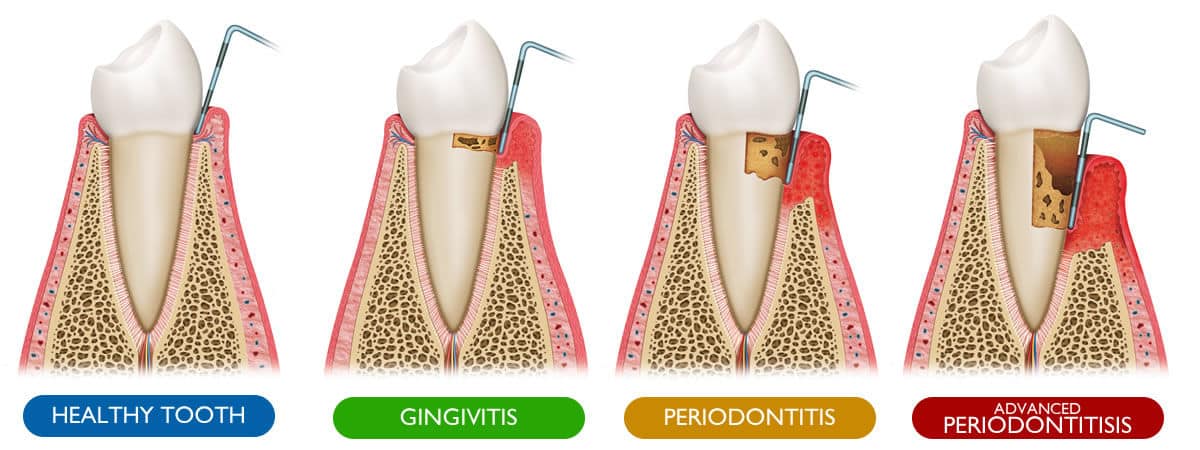Do you have gum disease? According to the Centers for Disease Control, or CDC:
- Almost half of adults over the age of 30 have gum disease.
- More than 70 percent of those who are 65 years and older have gum disease.
- Gum disease affects men more often than women.
- Those who live at or below the federal poverty level are more likely to develop gum disease.
These are truly lamentable and deplorable statistics because periodontal disease is completely preventable, and the gum disease cure won’t cost more than a toothbrush, toothpaste, dental floss, and mouthwash.
What are the signs of gum disease?
The initial stages of gum disease, usually called gingivitis, may not have any symptoms. If you include regular dental checkups in your oral hygiene regimen, however, your dentist may notice a gum infection before there are any symptoms. A gum disease treatment at this point may preclude the disease from progressing to a more advanced stage of periodontal disease.
However, if you have a gum infection or you notice that your gums are swollen or inflamed, particularly in a specific area, then you may be in the early stages of periodontal disease. The following signs of gum disease may indicate that you should make an appointment with your dentist. Early signs include:
- Swollen or inflamed gums: If you notice that your gums are tender or inflamed, then you should consult your dentist.
- Bleeding when you brush your teeth or floss: Your gums should never bleed when you’re brushing or flossing. Even a tinge of blood can indicate the need for a dental appointment.
- Bad breath: If you have perpetual halitosis, even though you brush and use mouthwash, you may have be in one of the stages of periodontal disease. The bacteria that cause gum disease can cause bad breath, so this is a common indicator.
- Longer teeth: If your teeth look longer than they used to, your gums may be receding, which is a strong indicator of the secondary stage of periodontal disease. Delaying gum disease treatment at this point can cause you to lose all of your teeth.
- Increased tooth sensitivity: Increased sensitivity in your teeth can indicate that you’re developing periodontal disease, especially if you have receding gums. When the gums recede, the dentin in your teeth is exposed. Since the dentin contains the nerves, you may experience pain in your teeth. Delaying treatment at this point is serious because you’re probably in a more advanced stage of gum disease and may lose your teeth.
- Loose teeth: If your teeth are becoming loose, this may indicate that you’re in one of the more advanced stages of periodontal disease and should seek professional gum disease treatment immediately. Otherwise, you can lose all of your teeth, some of your jawbone, and some of your facial structure.
See Also: Gum Disease Stages
What is the best gingivitis cure?
The best gingivitis cure is your toothbrush and toothpaste, dental floss, and mouthwash. When those are combined with at least annual dental cleanings and checkups, then you’ll most likely not need an additional gingivitis cure.
What does gum disease look like?
- Gum disease will initially present as swollen and inflamed gums.
- You may have bad breath all of the time.
- Your gums may not hug your teeth as snugly as they once did.
- Left untreated, your gums will begin to recede from your teeth.
- Your teeth will loosen and may begin to fall out.
- Your jawbone will begin to lose bone mass.
- Your facial structure will become distorted.
How is gum disease treated?
At Home
If you have gingivitis and want to try a home treatment first, then make sure you:
- Start with a good oral hygiene regimen.
- Brush for two minutes at least twice each day.
- Floss each night before you go to bed.
- Use an antibacterial mouthwash that carries the American Dental Association seal of approval. This will remove any residual bacteria that brushing and flossing missed.
- Make sure that your antibacterial mouthwash states that it can treat gingivitis.
- A couple of times daily, rinse your mouth well with salt water.
At The Dentist
Your dentist has a variety of options available, depending on the stage of your periodontal disease. Optimally, you’ll seek treatment while your gum disease is still in the early stage of gingivitis. At this point, you may receive antibiotics if you have an infection. You may need to change toothpaste to one that contains fluoride, and you may need a toothpaste that contains an antibiotic.
If you have a severe amount of plaque, your dentist may recommend a deep cleaning and scaling that will remove the plaque that’s the root cause of your periodontal disease. You may also need root planing, which will help your teeth and gums become reattached. Depending on the severity of your gum disease, your gum disease treatment may require more than one office visit.
What happens if I have advanced periodontal disease?
If you are in the stages of advanced gum disease, then you’ll have incurred severe and permanent damage to your teeth, gums, and jawbone. You may also have facial distortion. At this point, there isn’t a gum disease treatment that will reverse the damage that’s been done. Reconstructive dentistry and sometimes a gum graft or bone graft can restore functionality, but both are major surgical procedures and therefore carry some risk.
The best prevention for developing any stage of gum disease is a regimen of good oral hygiene that includes at least annual dental cleanings and checkups. Your dentist can frequently catch signs of gum disease that you might miss.
How much does gum disease treatment cost in Los Angeles?
The cost of any dental procedure will be unique to the patient because no two patients have the same dental needs or circumstances. When you come to our office for your initial consultation, we’ll provide you with an estimate of the procedures you’ll need and the cost for each. If you have a gum infection, then don’t delay in scheduling an appointment at 818-788-8787.
If you need gum disease treatment or gum grafting in Los Angeles, then Delaram Hanookai at Southland Dental Care can help you. Southland Dental Care is one of the best in the area, and we keep our prices competitive and affordable. Dr. Delaram Hanookai has been practicing periodontics for more than 15 years and realizes that restoring smiles and dental health to her patients can have a tremendously positive impact on their oral and emotional health.
If you have gingivitis…
Be sure not to delay seeking treatment if you have any stage of gum disease. It may seem relatively unimportant, but gum disease can increase your risk of developing cancer, diabetes, cardiovascular disease, pneumonia, and osteoporosis. It can also make you lose all of your teeth and your facial structure, so don’t delay seeking treatment. Call us today. You’ll be glad you did.









